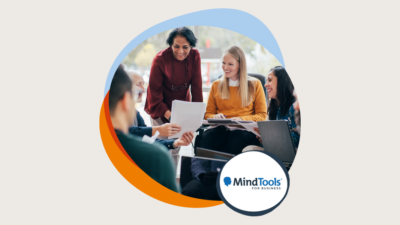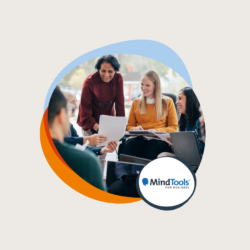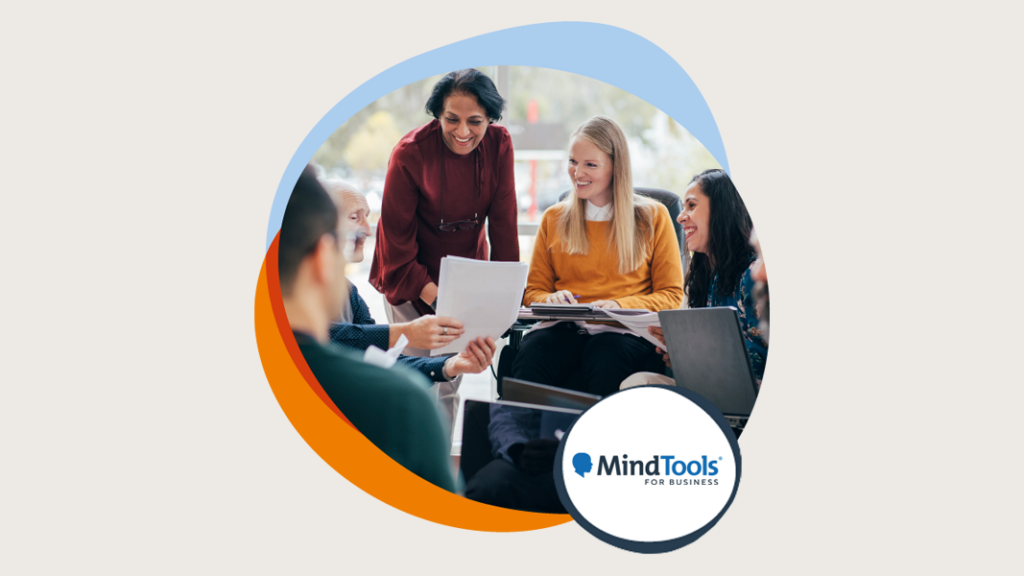"You cannot fix a problem that you refuse to acknowledge."
– Margaret Heffernan, Willful Blindness: Why We Ignore the Obvious at Our Peril
Choosing Not to See
Think about how many people you know who wear glasses or contact lenses, or who have had ophthalmic surgery. Or the 20 million people worldwide every year who have cataracts removed. We do everything we can to see again. So, why are there things that we choose not to see?
Willful blindness is about turning a "blind eye" to problems that require you to take action. This might be because the problem is too painful to deal with. Or, perhaps the problem is complex and we don't know where to start. Alternatively, we might just leave it to fester because we can't be bothered to fix it, or because we hope someone else will deal with it.
Ignoring Problems, Creating More
We can be willfully blind in any area of our lives, from our personal health, through family disputes, to disruptive team behaviors at work, and beyond. Politics gets a bad name as much for what it ignores as for when it acts, whether locally, nationally or globally.
For example, you know that you could ease your diabetes by changing your diet, but you choose not to. It's easy to justify eating poorly "just this once" – even if you do it every day. But soon enough, this kind of blindness will catch up with you.
In our families, we might choose to ignore an invoice that needs paying, a young child's rudeness, or a teen's experimentation with drugs. Shockingly, violence or sexual abuse are all too often allowed to continue – against all logic and despite the values that we hold dear.
"Looking away" usually begins on a small scale. You might find yourself letting gossip or hurtful comments pass at work, even if they are discriminatory, because you don't want to get involved. Surely, it's just "banter"? But behavior like this can escalate into bullying or harassment and, while you aren't the perpetrator, you may become complicit in it.
Similarly, peer pressure is a factor in universities or fraternities that engage in dangerous hazing rituals. Not only are there people in authority who choose not to see the possible consequences of these actions, there are also those who actively defend it. These are people who want to remain ignorant because the truth will require them to change.
The Danger of Willful Blindness
In her book "Willful Blindness," Margaret Heffernan says that the biggest threats we face are the ones we don't see. Not because they're invisible, but because we choose to be willfully blind to them. (Mind Tools Club members and corporate customers can find our Book Insight podcast here.)
During our #MTtalk Twitter chat on Friday, we discussed the dangers of willful blindness. Here are the questions that we asked and some of the responses we received:
Q1. What do we mean by "willful blindness"?
@JKatzaman: Willful blindness is a convenient excuse to overlook a wrong.
@thevijaymahajan: Willful blindness means there is information you could and should know, but have elected not to know. Deliberate indifference and contrived ignorance also are used to describe the phenomenon.
Q2. What examples of willful blindness have you experienced/seen in the workplace, and what were its effects?
Apart from excessive executive bonuses, sexist jokes, racist comments, misuse of personal data, and overloading employees, examples also included:
@sittingpretty61: Policies implemented or ignored in the face of the detrimental effects on employees, resources, and/or customers.
@SaifuRizvi: Management not acting on impending problems before the time. This usually happens where there is reactive leaders at the helm.
Q3. How can company culture/leadership contribute to willful blindness, and what are the warning signs?
@JusChas: I'd say when leadership terminates or demotes an employee for bringing up an issue that they know has negative implications. Sadly this is extremely common.
@TwinkleTutoring: As is very often the case, a weak leadership – possibly in fear of their own managers. And ego-driven leaders. Secure, confident and genuine leaders can engender transparency and encourage safe whistle-blowing.
Q4. What makes us as individuals prefer ignorance? Why don't we want to see what's in front of us?
@Midgie_MT: Ignorance can be easier when they simply "turn a blind eye" rather than speak up. Finding a voice and speaking up, at times, takes courage.
@harrisonia: People who opt for ignorance do it for two reasons: 1) They have a layer of guilt and don't want to be identified. 2) They don't want to be associated with people who are doing the wrong thing.
Q5. What makes some people "see" more than others do?
@MicheleDD_MT: Life experience can enable some people to "see" more. For example, if you are disabled or come from a group that is outside the "norm," you will bring different perspectives to the table and you will ask more provocative questions.
@KobusNeethInst: They're courageous enough to look with "new eyes" AND call something by its name.
@NBlairHR: People wanting to do the right thing in spite of the consequences.
It seems that simply caring enough about other people can also help us to "see more." As @JKatzaman said, "When people care, they see." @NurseDee3 agreed, "The ability to see comes from EMPATHY."
Q6. How can we guard against willful blindness in ourselves?
@GenePetrovLMC: I think just being exposed to to alternate viewpoints can help. There is more than one way to look at things and if we can accept that, we can start to enlarge our lenses.
@Jikster2009: Question everything. Ask yourself why you are doing something. Is it the thing to do? Establish a personal code of conduct in line with your personal values and hold your behavior up to that standard.
@PaulONeill1972: By reflecting on the impact that "willful blindness" has on the wellness of the organization and its people.
Q7. What do you believe your workplace can do better to combat willful blindness, and what would be your part in that?
@LernChance: To have a workplace culture that allows challenging the status quo with the intent to foster discussions.
@imaginyst: Generally, to no specific place of employment, I would suggest reading and implementing some of the suggestions in Ray Dalio's book, "Principles: Life and Work."
Q8. How might you help a colleague who appears "blind" to something at work?
@jeremypmurphy: It's charitable to kindly and compassionately tell each other what our blind spots are. Sometimes that means a private conversation. It's valuable to do this, helps all of us.
@KLC2978: Encourage them to see from a different point of view. Explore how they interpret it and challenge that perspective. Really getting them to be more aware. If all else fails, union and higher management.
Q9. How can we support those who expose willful blindness at work?
@ZalkaB: By having their backs if they need it. When people speak up for honest reasons, it's the most horrible thing to do to say "I support you" in private and then do the opposite out loud/in public.
@SailorsBen: I feel like this is a loaded question. Whether we are on board with what that person is "exposing" is definitely a determining factor in how supportive I'll be. I think respecting, listening, and affirming are always the right things to do when people share views.
Q10. How and when will you call out willful blindness in future?
@Yolande_MT: I can't sit back and watch. I'll carry on speaking for the voiceless, building bridges between people and being a dealer in hope.
@Ganesh_Sabari: Willful blindness must never be ignored. However, be careful to ensure while exposing it, is not perceived as forming a union against management. Be dignified in your efforts.
To read all the tweets, have a look at the Storify version of our chat, here.
Coming Up
Generosity is often overlooked as an important element in one's career. It is, in fact, a key driver of success. So, the topic of our next #MTtalk chat, on April 13, is "Generosity at Work."
To kick off our discussion, we'd like to know what type of generosity you'd like to see more of in your workplace. Click here to cast your vote.
Resources
In the meantime, here are some resources that will help you to learn more about the dangers of willful blindness, and about being accountable:
Mind Tools Club members and corporate clients can also access the full versions of the following articles:







Many factions curating information want to compel us to act without thinking. You can call it fake news or falsehoods, however, for our own best interest being blind to ignorance has lifelong consequences. Great topic and so needed.
Dorrie, as you say, there are so many factions out there wanting us to follow without thinking. It seems the skill of critical thinking is in short supply nowadays. There are plenty people who criticise, but not nearly as many people who can truly think critically about their own perceptions and assumptions, and about what happens in the world around them. The lack of critical thinking also causes people not to question, and to turn a blind eye when they shouldn't.
It was great to hear your wise words and thoughts during the chat too, Dorrie - thanks!